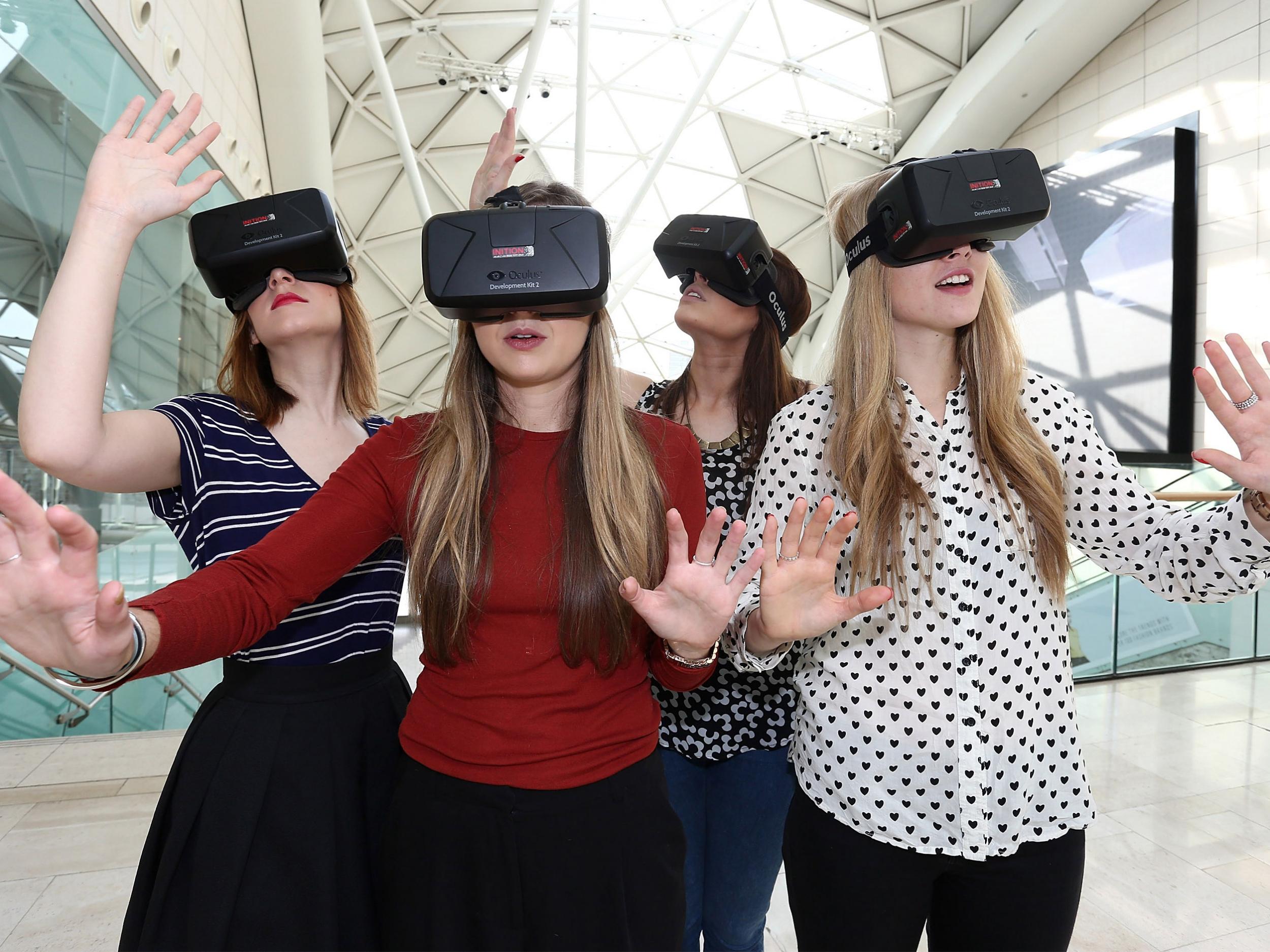Oculus Rift terms and conditions allow Facebook to monitor users’ movements and use it for advertising
The Facebook-owned company’s VR headset installs a piece of software that keeps watch of when people are using it — and can send that off to other firms

Oculus Rift appears to collect information on the people wearing it and send all of that back to other companies, according to its terms and conditions.
Oculus, the virtual reality firm which was bought out by Facebook in 2014, is sending the first versions of its consumer headset out to users. But some are already pointing out terrifying parts of the terms of service that people sign up to use it.
When the headset’s software is installed on a computer, it adds a process that allows the PC to watch what the headset is doing and send that back to Oculus. That allows the headset to know when it is being used and turn itself on — but it also allows the company to collect information on people’s head movements and activity and send it back to advertisers.
The terms and conditions include a line saying that the headset will collect “Information about your physical movements and dimensions when you use a virtual reality headset”, along with a range of more usual information like data about users’ computers and location.
The company lays out some of the ways that it will use the information within the terms, and most of them are mundane. But one line makes clear that Oculus and Facebook will be able to use the information it collects to market to people.
“We use the information we collect to send you promotional messages and content and otherwise market to you on and off our Services,” the terms read. “We also use this information to measure how users respond to our marketing efforts.”
The terms also make clear that the company is allowed to send that data to “related companies” — that includes not only Oculus’s owner, Facebook, but also other parts of Facebook’s “family of services”, like WhatsApp.
Join our commenting forum
Join thought-provoking conversations, follow other Independent readers and see their replies
0Comments